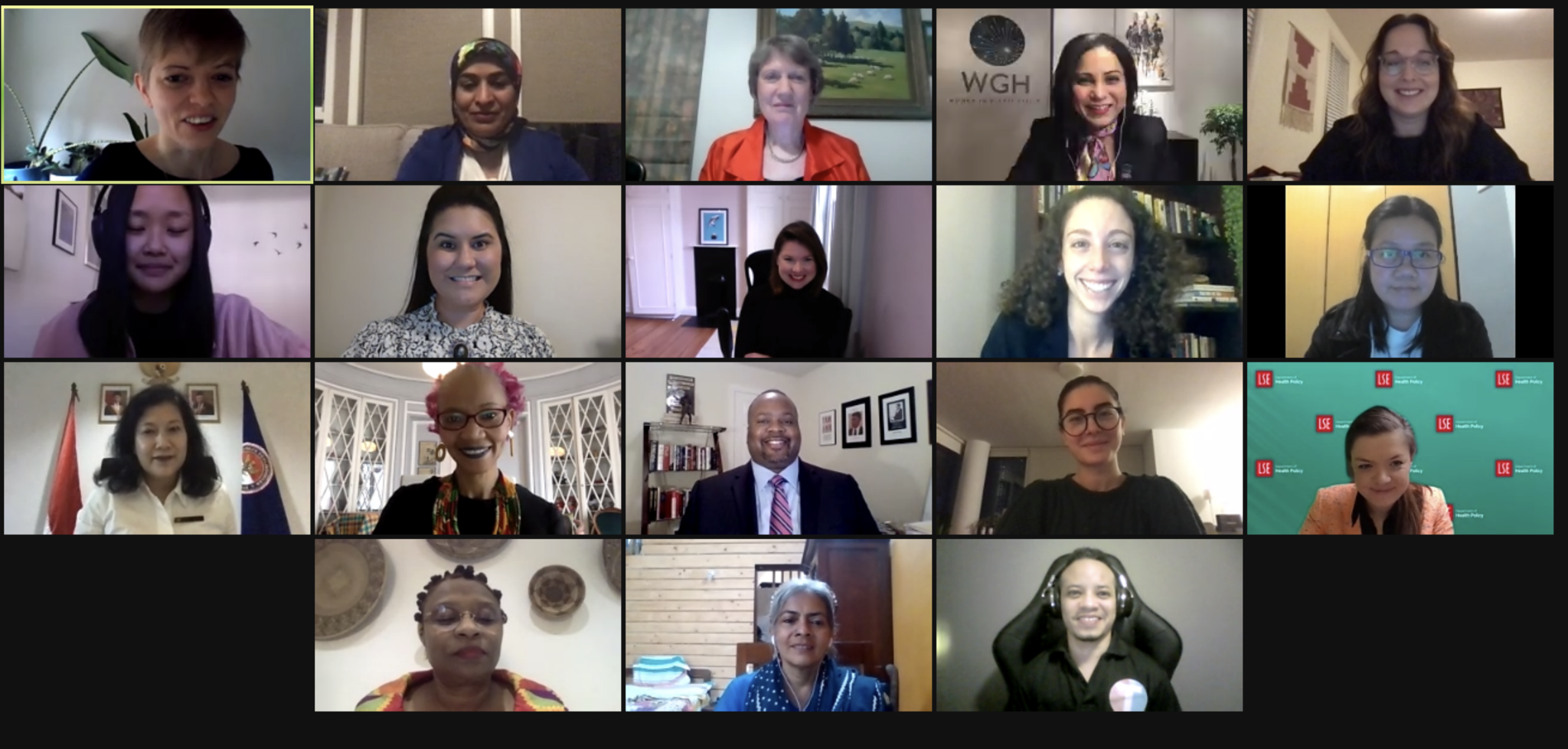On the 8 March Gender and COVID-19 Project staff Anne Ngunjiri, Clare Wenham and Rosemary Morgan took part in The Exchange on The Gendered Impact of COVID-19, which was coordinated by Women in Global Health and the Gender and COVID-19 Project. The Exchange is a series of town hall style meetings, hosted by the Independent Panel for Pandemic Preparedness and Response, aimed at hearing from people on the frontline of the COVID-19 pandemic.
The mission of the Independent Panel is to provide an evidence-based path for the future, grounded in lessons of the present and the past to ensure countries and global institutions, including specifically WHO, effectively address health threats. Gender imbalances in the management of the pandemic, gender-based violence, and women’s economic participation were on the agenda.
The Gendered Impact of COVID-19 from The Independent Panel on Vimeo.
The Gender and COVID-19 Project has supported the Independent Panel by drawing together evidence into a background paper which was co-authored with Women in Global Health. The paper argues that COVID-19, similar to previous health emergencies, impacts men, women, and non-binary people in different ways. This can include both the direct effects of infection with the pathogen, with men suffering more severe health outcomes; and the indirect effects of the non-pharmaceutical interventions introduced by governments to mitigate the spread of the disease, which have disproportionately affected women. Yet, gender neutral policy making by international organisations and governments, focused solely on case numbers, rather than who those numbers are masks these differences.
International Health Regulations (IHR) are important opportunities to consider the World Health Organization (WHO) and states’ response to the COVID-19 pandemic from a gender perspective. National governments are responsible for developing and implementing laws and policies to respond to crises, and mitigating outbreak impacts on different sectors of society. WHO is responsible for global priority-setting and coordination, information dissemination and knowledge sharing. IHR must mainstream gender in planned actions and obligations. All future pandemic preparedness and response must be gendered.






